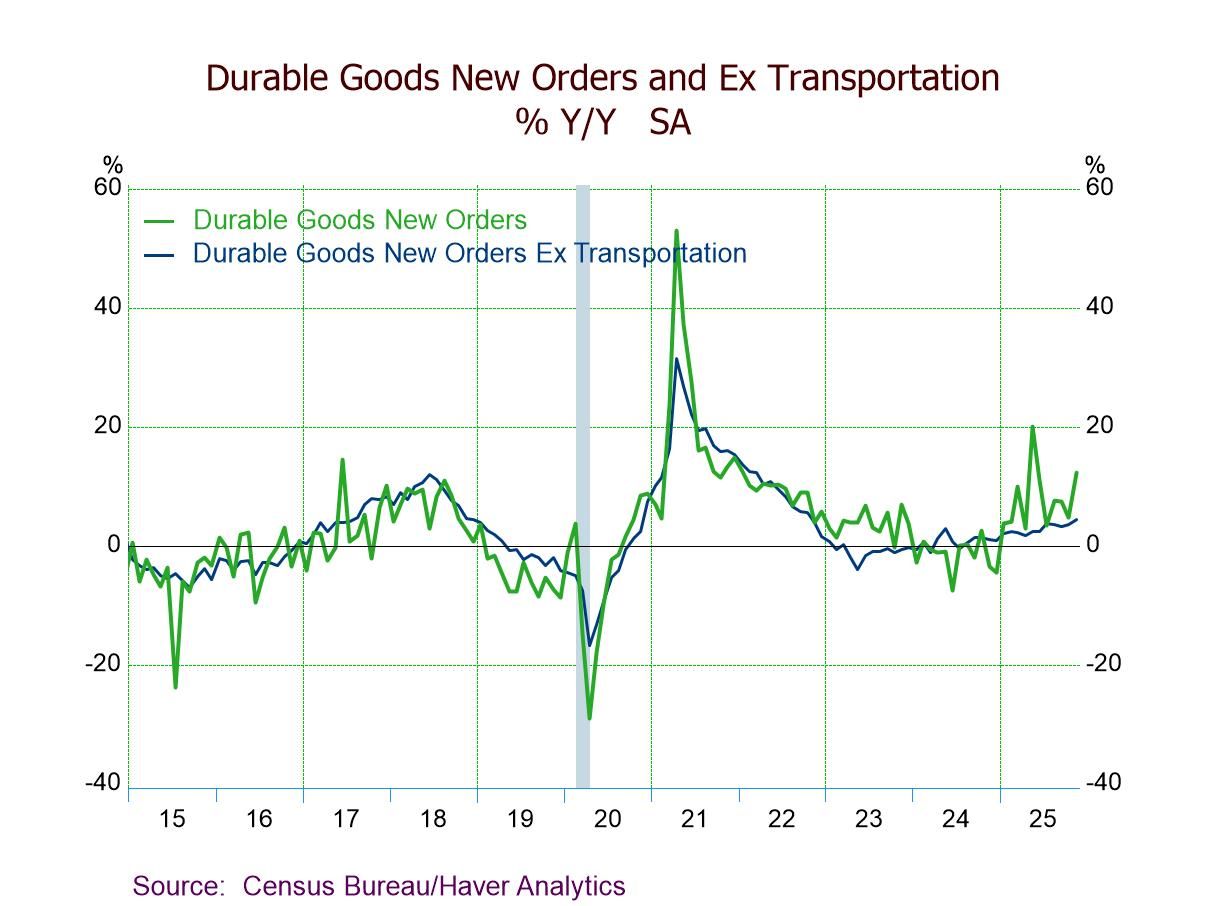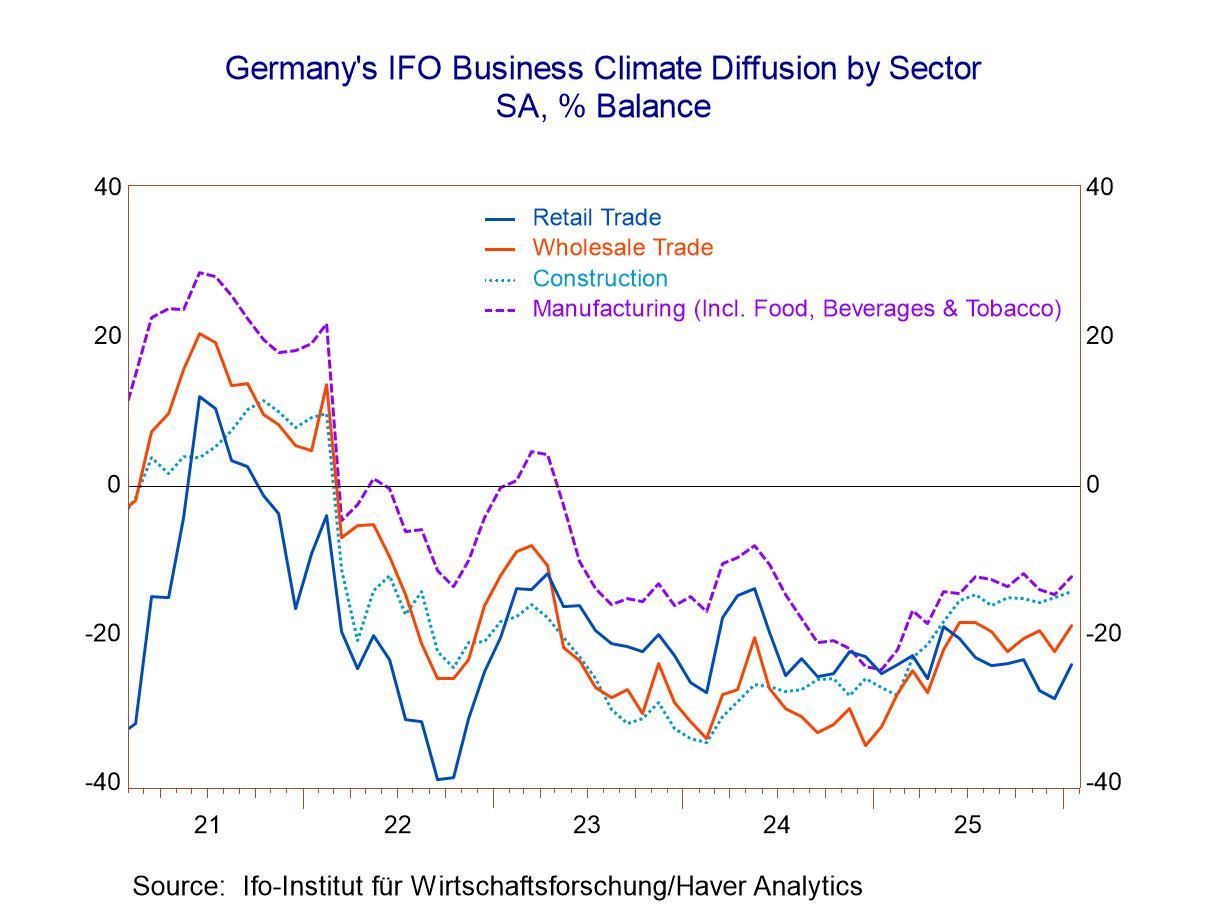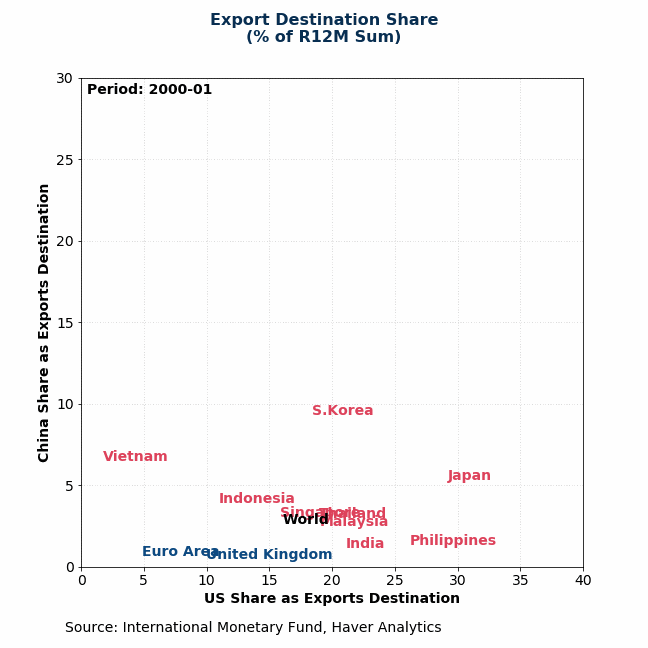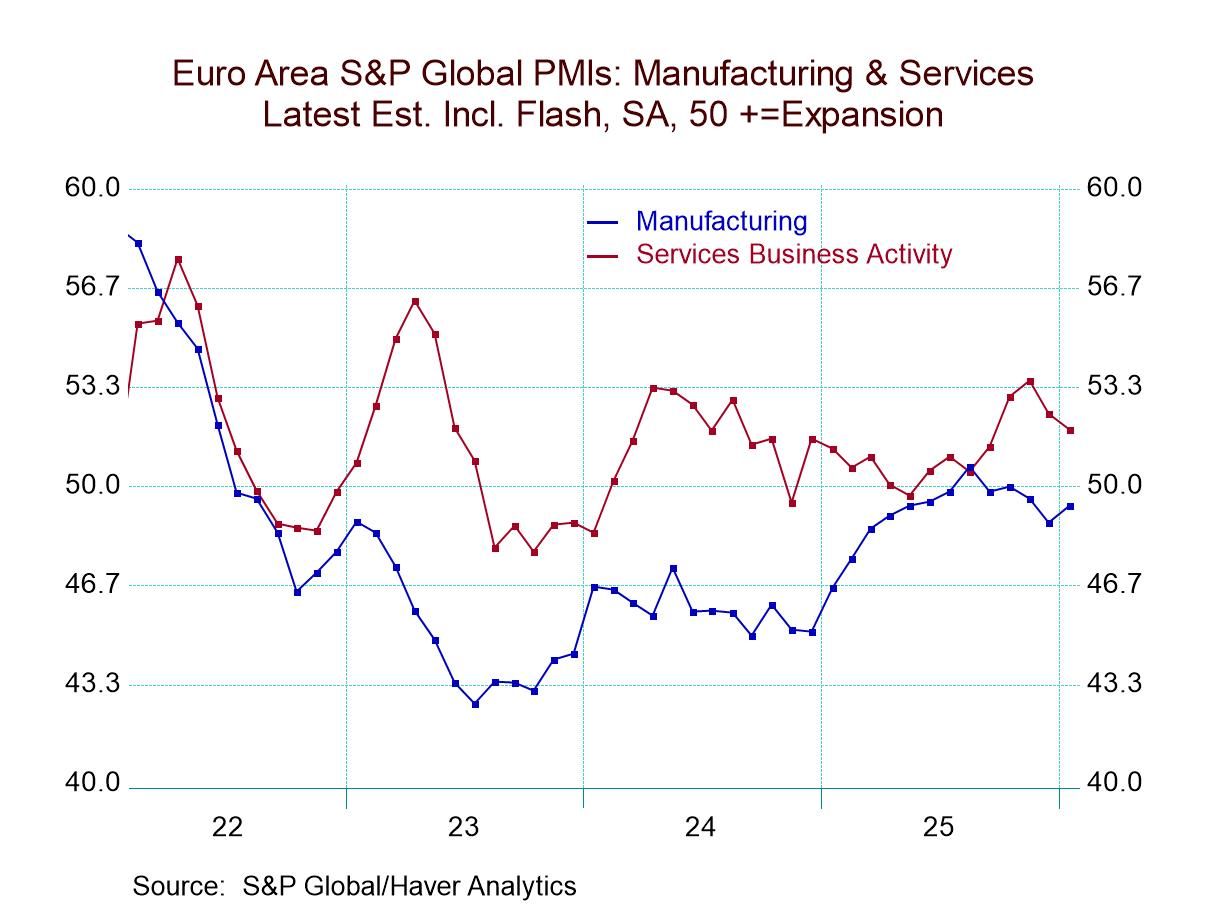 Global| Mar 01 2011
Global| Mar 01 2011MFG Is At Strong Diffusion Levels Across MOST of EMU
Summary
The chart shows that EMU countries had completed much of their recession rebound according to the diffusion indices by late 2010; after some minor weakness, indices have moved up to even stronger levels. The EMU PMI gauge overall and [...]
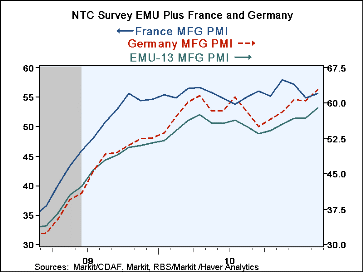 The chart shows that EMU countries had completed much of their recession rebound according to the diffusion indices by
late 2010; after some minor weakness, indices have moved up to even stronger levels. The EMU PMI gauge overall and in many
EMU member countries is at highs since March of 2000. EMU, Germany, Austria, Ireland and The Netherlands are at highs. Other
countries are either solid or moderately strong; only Greece among these reporters is weak –and it is very weak. Moreover, Greece
alone saw its MFG sector weaken from January to February and in fact Greece’s MFG sector has weakened for three months in a row.
France broke a similar weakening streak this month.
The chart shows that EMU countries had completed much of their recession rebound according to the diffusion indices by
late 2010; after some minor weakness, indices have moved up to even stronger levels. The EMU PMI gauge overall and in many
EMU member countries is at highs since March of 2000. EMU, Germany, Austria, Ireland and The Netherlands are at highs. Other
countries are either solid or moderately strong; only Greece among these reporters is weak –and it is very weak. Moreover, Greece
alone saw its MFG sector weaken from January to February and in fact Greece’s MFG sector has weakened for three months in a row.
France broke a similar weakening streak this month.
The PMI data do not assess the degree of rebound but rather are breadth indicators. For example while Germanys PMI is at its high since 2000, Germany's IP level as of Dec is 'only' 93% of past cycle peak compared to 90% for France, 80% for Italy, and 77% for Spain. The degree of recovery in that sense still has a ways to do. What we do see is that the breadth of the MFG expansion across various EMU countries is generally good-to-excellent. Of course, as we just demonstrated, the level of industrial output has not been restored to prerecession levels but in the sense of breadth in the recovery is now solid and is about as strong as it gets.
Robert Brusca
AuthorMore in Author Profile »Robert A. Brusca is Chief Economist of Fact and Opinion Economics, a consulting firm he founded in Manhattan. He has been an economist on Wall Street for over 25 years. He has visited central banking and large institutional clients in over 30 countries in his career as an economist. Mr. Brusca was a Divisional Research Chief at the Federal Reserve Bank of NY (Chief of the International Financial markets Division), a Fed Watcher at Irving Trust and Chief Economist at Nikko Securities International. He is widely quoted and appears in various media. Mr. Brusca holds an MA and Ph.D. in economics from Michigan State University and a BA in Economics from the University of Michigan. His research pursues his strong interests in non aligned policy economics as well as international economics. FAO Economics’ research targets investors to assist them in making better investment decisions in stocks, bonds and in a variety of international assets. The company does not manage money and has no conflicts in giving economic advice.



